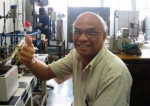Tutuka Ariaji: Distribution is The Main Problem of Subsidized Fuel
By Bangkit Dana Setiawan
Editor Bangkit Dana Setiawan
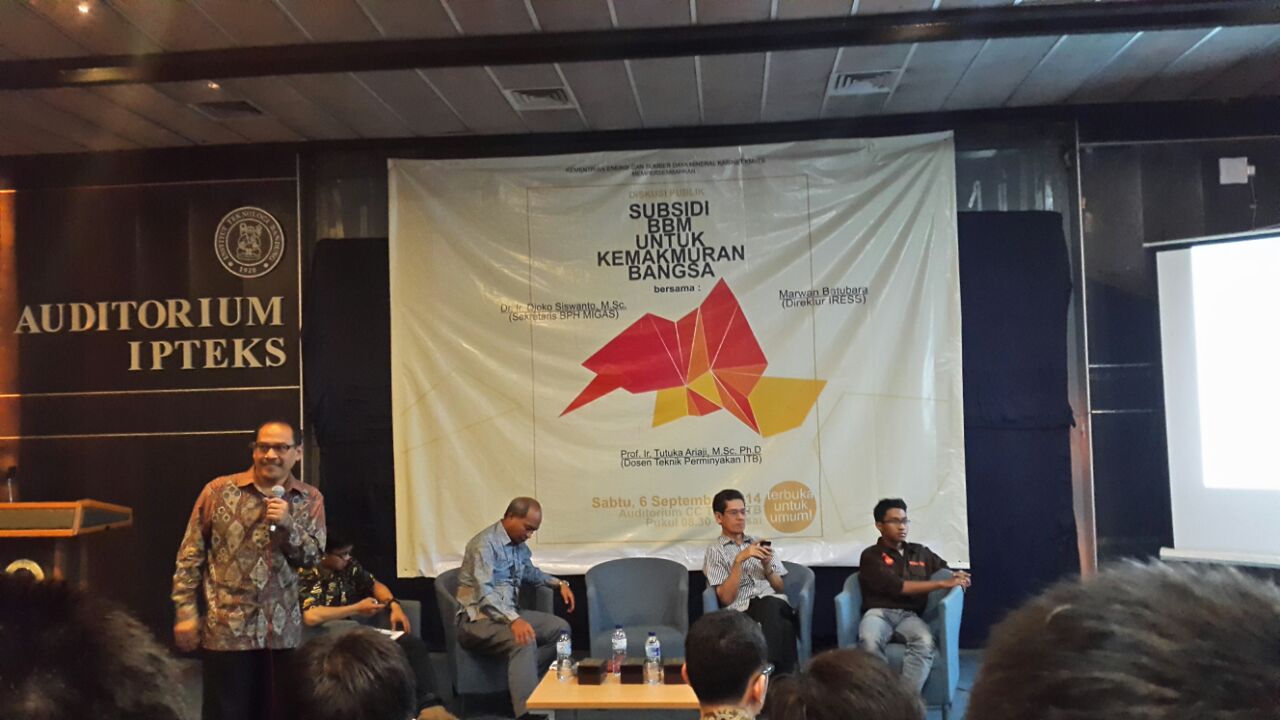
 BANDUNG, itb.ac.id - Issue about fuel isn't a new thing in Indonesia. As a country which still very dependent to fuel, this issue is always interesting to be discussed. Recently there is new policy in Act 12 of 2014 about the State Budget Amendment that quota of subsidized fuel from initially 48 million kiloliters, now is decreased into 46 million kiloliters. Because of that, Ministry of Energy and Mineral Resources in ITB Students Cabinet held public discussion about fuel subsidy on Saturday (06/09/14).
BANDUNG, itb.ac.id - Issue about fuel isn't a new thing in Indonesia. As a country which still very dependent to fuel, this issue is always interesting to be discussed. Recently there is new policy in Act 12 of 2014 about the State Budget Amendment that quota of subsidized fuel from initially 48 million kiloliters, now is decreased into 46 million kiloliters. Because of that, Ministry of Energy and Mineral Resources in ITB Students Cabinet held public discussion about fuel subsidy on Saturday (06/09/14).
Most of Indonesians' life are dependent to fuel. Almost all needs get satisfied by this fossil energy. In the past, it was not a big problem since Indonesia was one of the oil producer and exporter. Many countries were dependent to oil supply from Indonesia. Because of that, Indonesia might have joined in Organization of Petroleum Exporting Countries (OPEC).
Now the situation is changed. Indonesia is no longer as rich as before, especially about its sources of oil reserves. Based on the statistics data from Ministry of Energy and Mineral Resources in 2012, domestic oil production is decreasing year to year. In 2004 total national oil production was 353.94 million barrel and keep decreasing till in 2012 it was only 279.42 million barrel. Indonesia has been oil importer. It also supported by the fact that Indonesia got out from OPEC in 2008.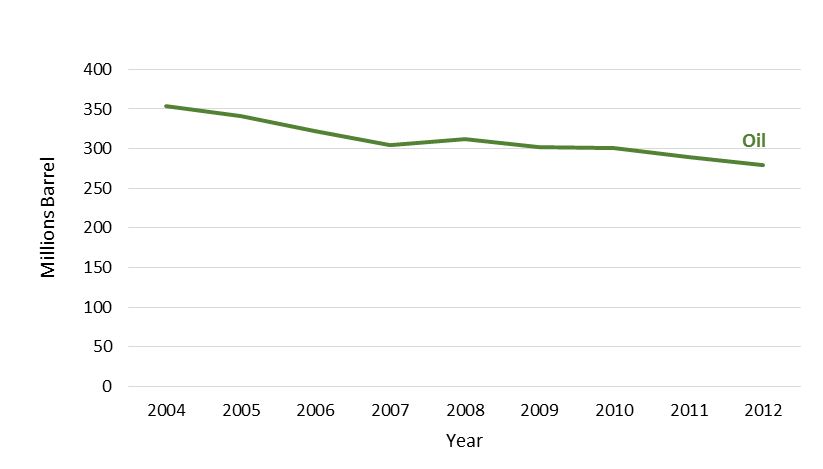 By the increasing number of Indonesian population, the needs of fuel also increase. Unfortunately, it's not supported by increasing national oil production. In 2013 Indonesia oil production was 825,000 barrel per day, but 15 percents went to the contractors. It made this country only got 700,000 barrel per day. From that number, only around 600,000 barrel per day can be processed domestically to be fuel because of lack of technology in some oil refineries in Indonesia. Since fuel needs in Indonesia goes till 1.5 million barrel per day, Indonesia has to import its shortage either fuel or crude oil.
By the increasing number of Indonesian population, the needs of fuel also increase. Unfortunately, it's not supported by increasing national oil production. In 2013 Indonesia oil production was 825,000 barrel per day, but 15 percents went to the contractors. It made this country only got 700,000 barrel per day. From that number, only around 600,000 barrel per day can be processed domestically to be fuel because of lack of technology in some oil refineries in Indonesia. Since fuel needs in Indonesia goes till 1.5 million barrel per day, Indonesia has to import its shortage either fuel or crude oil.
About Subsidized Fuel
In public discussion about subsidized fuel, ITB Petroleum Engineering Lecturer, Ir. Tutuka Ariaji, MSc., Ph.D. explained its benefits and costs. "Subsidized fuel has economic advantage to hold the inflation rate and poverty numbers, but its costs is the other sectors has been bounded, such as in infrastructure. It made alternative energy isn't developed well which actually can decrease our dependent into fuel," Tutuka said.
Fuel subsidy has been set at the constitutional mandate of the Constitution Article 33. In 2012 fuel subsidy was IDR 211.9 billion or about 21 percent of the State Budget. "In 2013 and 2014 respectively decreased in number IDR 199.9 billion and IDR 194.9 billion. However, the number of fuel subsidy in 2015 is predicted will be rise significantly till IDR 291 billion," Tutuka said.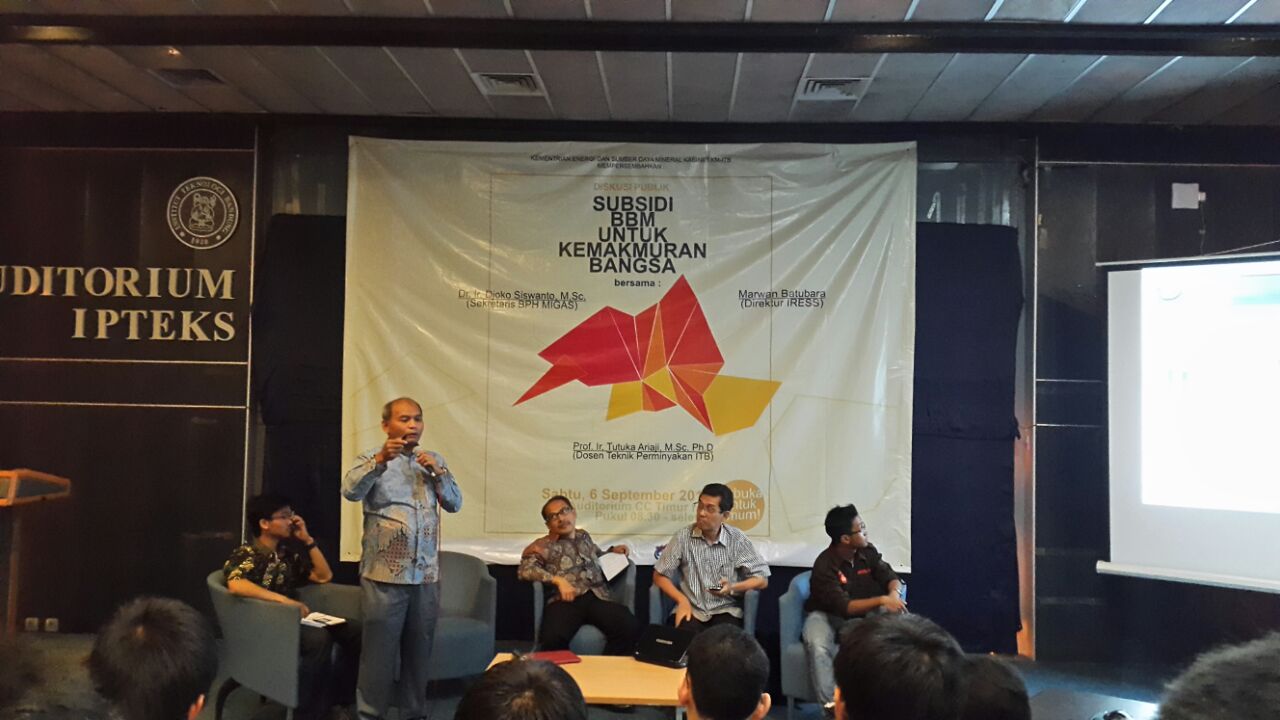 As explained that subsidy is aimed to hold poverty rate in Indonesia, but the fact isn't like that. It's related to the Ministry of Energy and Mineral Resources statement that 77% of subsidized fuel consumed by 25% of rich peoples and only 20% of subsidized fuel consumed by 25% of poor peoples. "This is what we have to correct. Restriction of fuel subsidy into 46 million kilo liters ought to satisfy the needs of subsidized fuel. The fact said that there were long queues in oil gas station because of persons who abuse this subsidized fuel," Dr. Ir. Djoko Siswanto, M.B.A. as Director of BPH Migas (Organizer entity of lower level distribution of oil and gas in Indonesia) added.
As explained that subsidy is aimed to hold poverty rate in Indonesia, but the fact isn't like that. It's related to the Ministry of Energy and Mineral Resources statement that 77% of subsidized fuel consumed by 25% of rich peoples and only 20% of subsidized fuel consumed by 25% of poor peoples. "This is what we have to correct. Restriction of fuel subsidy into 46 million kilo liters ought to satisfy the needs of subsidized fuel. The fact said that there were long queues in oil gas station because of persons who abuse this subsidized fuel," Dr. Ir. Djoko Siswanto, M.B.A. as Director of BPH Migas (Organizer entity of lower level distribution of oil and gas in Indonesia) added.
Djoko said that the main problem of subsidized fuel isn't in its quotas but in its distributions which involved many irresponsible persons. There are rules have been issued by BPH Migas on subsidized fuel, such as BPH Migas Regulation No. 3 Year 2012 concerning the handling of certain types of fuel used for cars on Gardening and Mining Activities. "Although it has been ruled but the leakage is still occurred. So that, we should all support each other surveillance, prevention, and imposing on dishonesty acts on subsidized fuel," Djoko said.
The issue of fuel subsidy isn't only for government, but also belongs to all the peoples in Indonesia, including students. "Students should have following characteristics that are active, visionary, high initiative, and always study something in multi-disciplinary perspectives. By this discussion public, we hoped that students can widen their knowledge and study what government does, either right or not. If it's not, students should speak up but still must have logical and excellent basis," Tutuka lid.



.jpg)
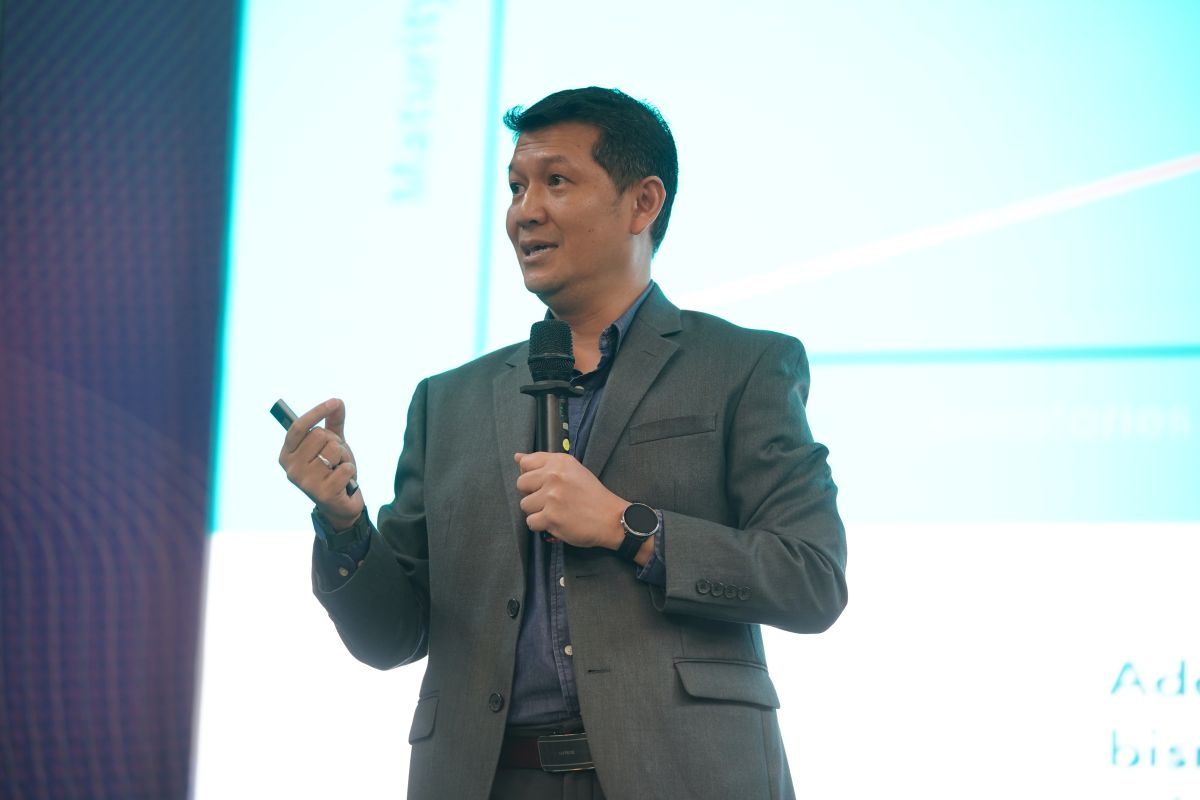
.jpg)

